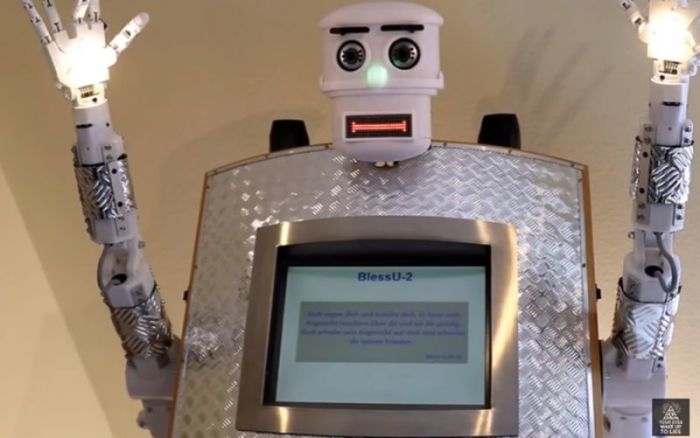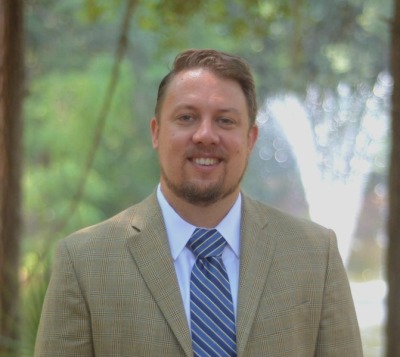How to Prevent an Artificial Intelligence God

Humanity's best future will happen with the proper stewarding of science and technology. How can we assure such stewardship? By training up more tech pastors.

Recently Olivia Solon wrote an article in the Guardian titled Deus ex machine: former Google engineer is developing an AI god that considered the risks surrounding the development of an AI god. The piece was authored because of Wired Magazine's speculation that tech entrepreneur Anthony Levandowski has formed a religious organization for the purpose of potentially developing an AI god.
For most Christians such propositions conjure mental images of the golden calf in Exodus. But the suggestion of someone building an AI idol also points to a more important, nuanced consideration: How are we going to frame the ethics that surround emerging technology? Or as Chicago Tribune writer Clarence Page asks more directly in one of his syndicated columns titled Can androids pray for digital salvation? — "If your supercomputer loses its moral or ethical way, who's going to tell it?"
Many science and tech experts like Elon Musk, Stephen Hawking and Bill Gates have warned of the dangers of emerging tech and Artificial Intelligence specifically. Hawking is so worried about such potential threats that he has stated that humans need to come up with an evacuation plan to leave earth. Musk is so concerned about the AI issue that he issued warnings to leaders from across the United States of the perceived threat at the most recent National Governor's Association Summer Meeting. One has to wonder if Musk's preoccupation with colonizing Mars has been accelerated by this fear.
In spite of such concerns, the fact still remains that the practical outcomes of escapist concepts in science and technology are just as bad as they are in theology. Running away from most problems will not solve them. Beyond that, Christians are called to help in Christ's redemptive purposes on earth as we seek to actualize Christ's great prayer "on Earth as it is in Heaven."
The reality of humanity is that humans are called to be CoCreators with God and one another. We have a divine appointment to explore possibilities and discern what constitutes proper choices in order to appropriately steward science and technology. It doesn't take much investigation to discover that that reality is simply part of who we are as humans.
For instance, recently my friend Giulio Prisco – a former senior manager in the European Space Agency - wrote an article titled Concepts of God and the Kingdom inspired by highly imaginative science that expressed this intrinsic need in people to varying degrees. Prisco also articulated his personal call to explore theological and technological possibilities outside of concepts that are considered currently religiously orthodox. I am all for such exploration because, I think that that is exactly what Jesus encouraged the disciples to do in their formational practice.
When Christ sent people out — to effectively do what seems miraculous from given perspective in time — he was calling them to imagine a better way of looking at the world and then challenging them to believe that better way into existence with action. Now that technology is expanding the possibilities of our imaginations, we are faced with new opportunities to virtuously live into the wonder of these possibilities.
The potential problem at hand, of developing idolatrous tech, arises with the rapid pace of technological development and the people who are creating it. If the people who are creating technology and racing toward new scientific developments are not virtuous people – then there is a high possibility that they will not create virtuous tech. The only way to increase humanity's odds of creating more virtuous tech is to help to create more virtuous people in tech related fields.
The easiest way to help develop virtuous people in tech related fields is to educate people already trained in virtue formation to learn about present and emerging advancements in science and technology. Pastors of local congregations are prime candidates for such training because most are equipped with at a least master's level education in virtue formation. Many pastors are skilled translators of taking complicated theoretical academic material and converting into bite-sized practical actions for the masses in a way that address common practical needs. Additionally, many pastors are trained to preemptively tackle underlying personal issues that tend to lead individuals off of a virtuous track.
If properly educated about emerging science and technology – virtuous Tech Pastors will have a unique opportunity to help formationally mentor and guide virtuous behavior for technologists, tech companies, and the general public at large.
From my personal experience, there is a great desire for such mentoring and formational guidance by technologists. I get contacted regularly from complete strangers who are developing new tech ideas and who are concerned about developing the best tech they can for humanity. I believe that most people want to do good and genuinely help people – but doing so requires good help and guidance, which is often hard to find.
More and more people are beginning to recognize this practical pastoral need for scientists and technologists as the media unveils, to the general public, new tech in development. For instance, through conversations with the American Association for the Advancement of Science, Pittsburgh Theological Seminary has created a Doctor of Ministry program that is focused in Science (Technology) and Theology. PTS is currently enrolling interested pastors to specifically train them up to address such challenges.
What society needs to be careful not to forget is that, behind whatever new emerging tech is being developed in the world, there is usually a human being who, like all of us, needs care. Most entrepreneurs are natural risk takers who are inherently called to push the boundaries of social acceptance. Folks like Anthony Levandowski are no exception. If they don't have good options to be cared for in ways that formationally shape them to become better human beings – then we can almost be certain that the tech that they create will not serve humanity well in the future.
Based on the reports I've seen, I don't know if Anthony Levandowski is actually seeking to build an AI god or an AI that points to and helps in the purposes of God. What I do know is that there is a big difference between those two options. If I can help him, or anyone, be it individuals, companies or nation, in the development of the latter I am willing to do so. And if we train up more virtuous tech pastors soon, then humanity will have a far better shot at making all of our emerging technology, AI and fellow human beings far less idolatrous and far more redemptive.





























